Methadone Detox Timeline, Withdrawal Symptoms, & Treatment
Methadone withdrawal can be very uncomfortable and challenging for the patient. It can feel like a bad flu. Methadone detox can be difficult and should only be undertaken with the guidance and support of medical professionals. Proper medical monitoring and support can help manage withdrawal symptoms and increase the likelihood of a successful detox. Read more about methadone detox, withdrawal management, and relapse prevention.
By We Level Up | Editor Yamilla Francese | Clinically Reviewed By Lauren Barry, LMFT, MCAP, QS, Director of Quality Assurance | Editorial Policy | Research Policy | Last Updated: May 10, 2023
Methadone Detox Overview
Methadone is a synthetic opioid traditionally prescribed to treat moderate to severe pain. Methadone is only used to manage severe pain when other pharmacotherapies do not work or cannot be tolerated. Furthermore, methadone is also commonly used to help in treating certain opiate addictions, such as heroin.
Methadone is considered a Schedule II drug, the same as other opioids such as morphine and hydrocodone. As a result, if a person abruptly stops or attempts to reduce methadone use sharply, they may experience various withdrawal symptoms. Detox can do methadone detoxification at several facilities. These include a medical facility such as a hospital, a dedicated detox center, or even a treatment facility that provides detox services like We Level Up. However, attempting to self-detox at home can be dangerous and even life-threatening. It can also increase the likelihood of a relapse to opioid use.
You struggle with getting off methadone for a couple of reasons. First, you might be afraid of the symptoms that will come along with withdrawal. Second, they might have even attempted to detox at home, and the side effects were so harmful they decided to continue using the drug. But, if you have tried to get off methadone and have struggled, the best and safest way to withdraw from methadone is by detoxing under the care and supervision of trained addiction treatment medical professionals.
Methadone Withdrawal Timeline
How long does methadone withdrawal last? The timeline for methadone withdrawal can vary from person to person. It can be influenced by several factors, including the duration and frequency of methadone use, the dose taken, and individual differences in metabolism and health.
Moreover, some people may experience protracted withdrawal symptoms lasting for weeks or months after discontinuing methadone use. These symptoms can include anxiety, depression, insomnia, and fatigue.
Here is a general timeline of methadone withdrawal:
| Days 1-3 | Withdrawal symptoms typically begin within the first 24 hours after the last dose. Symptoms during this time may include anxiety, restlessness, insomnia, sweating, runny nose, and muscle aches. |
| Days 4-7 | Symptoms peak during this time, including nausea, vomiting, diarrhea, abdominal cramps, and dehydration. |
| Days 8-14 | Symptoms gradually subside, although some may persist, such as insomnia, anxiety, and depression. |
| Days 15 and beyond | Many people report feeling better by this time, but some may experience lingering symptoms such as fatigue, mood swings, and cravings. |
Methadone Withdrawal Symptoms
Methadone is a medication that is prescribed to manage opioid addiction. However, methadone itself can be addictive, and people who take methadone over some time can become physically dependent on it.
Common methadone withdrawal symptoms include the following:
- Sweating.
- Hallucinations.
- Rapid heartbeat.
- Diarrhea.
- Anxiety.
- Fever.
- Nausea.
- Vomiting.
- Stomach issues.
- Chills.
- Paranoia.
- Irritability.
- Cravings.
- Muscle aches and pains.
- Depression.
- Insomnia.
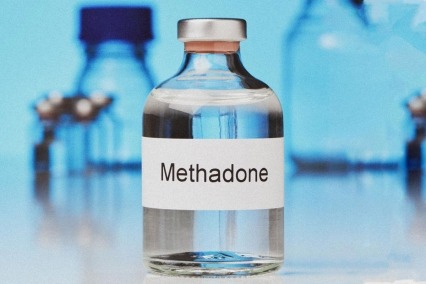
A person may require medically assisted methadone withdrawal for one of two reasons:
- They have been abusing methadone or on the medicine and are ready to discontinue maintenance. According to the NIDA (National Institute on Drug Abuse) [1], methadone maintenance therapy (MMT) should last at least a year, after which a person can discuss with their doctor whether to continue taking the medicine or be weaned off of it. Methadone withdrawal typically begins later than other kinds of opioid withdrawal due to the drug’s long-lasting effects. However, withdrawal symptoms will most likely start around.
- Thirty hours after your last methadone use. Symptoms of methadone withdrawal may linger between two and three weeks after that.
The duration and severity of methadone withdrawal can vary widely between individuals, and that withdrawal can be unpredictable. It is recommended that people seek professional opioid treatment medical help when withdrawing from methadone, as the process can be challenging and uncomfortable. A healthcare provider can offer support and guidance throughout the withdrawal process and may be able to provide medications to help manage withdrawal symptoms.
How Long Does It Take To Detox From Methadone?
Methadone detoxification is a process that requires time, medical supervision, and professional guidance. Methadone use can have highly unpleasant and possibly fatal side effects if stopped suddenly or without a doctor’s assistance. A suitable taper regimen can make it practical and manageable to stop taking methadone with the help of a physician. Since methadone has a long half-life, the onset of withdrawal symptoms could take up to 4 days. The total disappearance of symptoms may take 7–14 days.
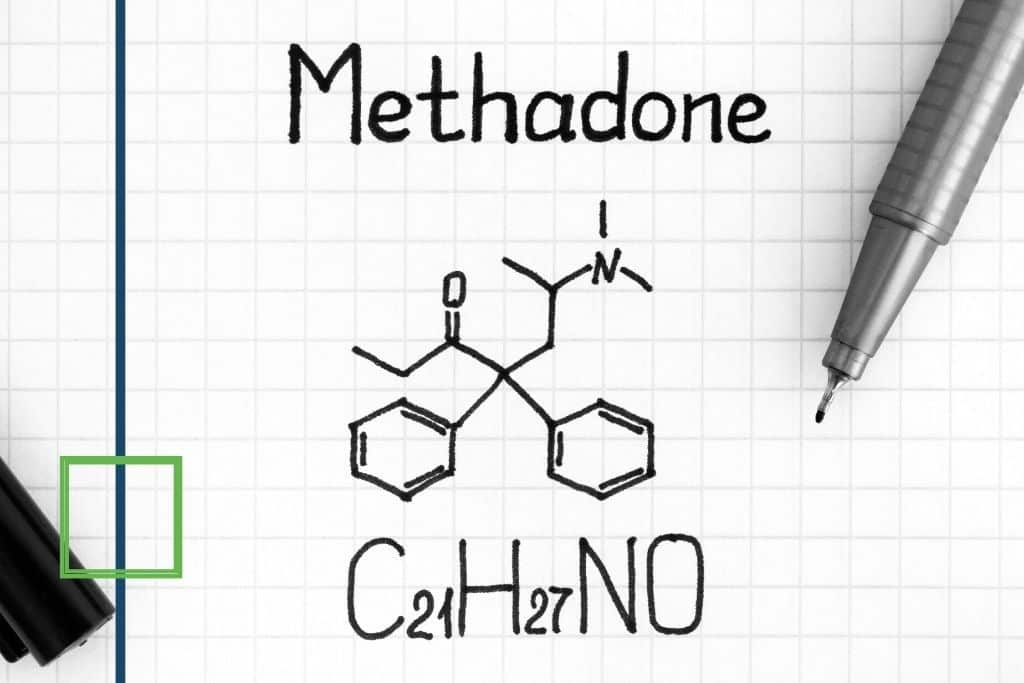
Skip To:
Learn More:
- Methadone Uses, Side Effects, Effective Treatment, and Risks
- Can You Get High On Methadone?
- Methadone Side Effects On Heart
- Can You Snort Methadone? Methadone Wafers, Dangers, Effects
- Opiate Withdrawal Symptoms, Can You Die From Opiate Withdrawal?
- How Long Do Opiates Stay in Your System, Body, Blood, and Urine?
- Medication Assisted Treatment
- Opioid Use Disorder Medication
- Opioid Withdrawal Timeline
- Inpatient Drug Rehab
Methadone Detox Protocol Fact Sheet
Methadone Withdrawal Management
Working with a healthcare professional to develop a tapering program that gradually reduces the drug dosage is the safest approach to stopping methadone. A taper aids in easing withdrawal symptoms and preventing relapse. The best chance of success for those who have been abusing the drug is to go through withdrawal in a medical detox program before starting a formal substance abuse recovery program.
Dangers of Methadone Withdrawal Perilous Symptoms
- Depression: Knowing how severe the symptoms will become beforehand is always challenging because everyone is different.
- Anxiety: The issues associated with withdrawal-induced stress are similar.
- Dehydration: Methadone withdrawal might cause you to sweat heavily, vomit, and have diarrhea. If you do not refill these fluids, your body will lose a significant amount of liquid, placing you in danger of dehydration.
- Relapse: Lapse is always the most dangerous potential side effect of withdrawal.
Methadone Detox Withdrawal Timeline
How long is methadone withdrawal? According to the typical methadone withdrawal timeline, when you are in the early withdrawal stage, symptoms can include agitation or anxiety, muscle aches, tearing eyes, runny nose, inability to sleep, and excessive yawning. As withdrawal progresses, you may have stomach cramps, nausea, vomiting, goosebumps, and dilated pupils. Methadone is a long-acting opioid, and withdrawal symptoms generally appear around 30 hours after the last dose. Acute methadone withdrawal can last about 2–3 weeks, with symptoms gradually improving around the 10th day of departure.
You may experience a protracted withdrawal period or post-acute withdrawal syndrome, in which withdrawal symptoms may persist for weeks or months. Physical symptoms of post-acute withdrawal can include fatigue. Cognitive symptoms, such as difficulty focusing on a task, may also occur. Protracted withdrawal can include emotional symptoms such as anxiety, depression, and constant irritability.
Methadone Withdrawal Protocol
Methadone withdrawal protocol refers to medical professionals’ procedures when helping an individual safely detox from methadone. Here are some common elements of a methadone withdrawal protocol:
- Medical Assessment: Before beginning the detox process, medical professionals will typically conduct a thorough medical assessment to evaluate the individual’s health and determine the appropriate course of treatment.
- Tapering: Methadone withdrawal is typically managed through a gradual tapering process, in which the individual’s methadone dose is gradually reduced over several weeks or months. This can help minimize withdrawal symptoms and make the detox process more manageable.
- Medications: Medications may be prescribed by qualified healthcare providers to help manage withdrawal symptoms, such as nausea, vomiting, and diarrhea. Additionally, pharmacotherapies may address other health issues that arise during the detox process.
- Monitoring: Medical professionals will closely monitor the individual during detox to ensure that withdrawal symptoms are managed effectively and address potential complications.
- Support: In addition to medical monitoring, individuals may receive emotional and psychological support throughout detox. This can include counseling, therapy, and support groups.
If you’re suffering from methadone addiction, knowing how to start the recovery process can be challenging. Our experienced, compassionate team members at We Level Up can help with high-quality methadone detox options.


Get Your Life Back
Find Hope & Recovery. Get Safe Comfortable Detox, Addiction Rehab & Dual Diagnosis High-Quality Care.
Hotline(844) 597-1011Methadone Statistics
Methadone, a synthetic opioid, is mainly used to treat opioid dependence and chronic pain. However, prolonged use and misuse can cause severe withdrawal symptoms. Methadone has a long half-life compared to other opioids, which means it stays in the body longer and can help prevent withdrawal symptoms. However, this also means it can build up in the body and cause potentially dangerous side effects if not used properly.
14,081
In 2019, there were 14,081 overdose deaths involving methadone in the United States.
Source: CDC
350,000
Methadone is often used as a maintenance medication for individuals undergoing treatment for opioid dependence. According to NIDA, approximately 350,000 people in the United States received methadone as part of their treatment for opioid dependence in 2018.
Source: NIDA
4%
methadone accounted for approximately 4% of opioid prescriptions in the United States in 2017.
Source: NIDA
What To Know About Rapid Methadone Detox?
Rapid methadone or ultra-rapid or anesthesia-assisted detox is a controversial and potentially risky procedure aiming to accelerate detoxification. In this procedure, the individual is placed under anesthesia and given high opioid antagonists, such as naloxone or naltrexone, to speed up the withdrawal process. Here are some rapid methadone detox key points to keep in mind if you’re considering this method:
- Most medical professionals do not recommend the rapid methadone detox procedure due to potential risks and lack of evidence supporting its effectiveness.
- The procedure can be dangerous and potentially life-threatening due to the risks associated with anesthesia and rapid withdrawal.
- Rapid methadone detox is not a guaranteed cure for opioid dependence and may require follow-up treatment, such as medication-assisted treatment, counseling, and therapy.
- Some studies have suggested that rapid methadone detox may have a higher risk of relapse and complications than other detoxification methods.
- Methadone detox should only be undertaken with the guidance and support of medical professionals experienced in treating opioid dependence.

Inpatient Methadone Detox
There are many practical and evidence-based methods for methadone detox, including gradual tapering, medication-assisted treatment, and behavioral therapy. These approaches are generally considered safer and more effective than rapid methadone detox.
One of the most significant benefits of undergoing a medical detox is the around-the-clock medical care and supervision; because you have trained medical professionals constantly checking on you, they can make the entire withdrawal and detox process as painless and comfortable as possible. They will also ensure you are slowly weaned off the methadone instead of quitting cold turkey.
Get Help. Get Better. Get Your Life Back.
Searching for Accredited Drug and Alcohol Rehab Centers Near You?
Even if you have failed previously and relapsed, or are in the middle of a difficult crisis, we stand ready to support you. Our trusted behavioral health specialists will not give up on you. When you feel ready or just want someone to speak to about therapy alternatives to change your life call us. Even if we cannot assist you, we will lead you to wherever you can get support. There is no obligation. Call our hotline today.
(844) 597-1011Can You Die From Methadone Withdrawal?
While methadone withdrawal can be uncomfortable and potentially dangerous, it is generally not considered to be fatal on its own. However, in some cases, complications related to methadone withdrawal can lead to serious health issues that may be life-threatening. Here are some potential problems or difficulties that can arise while detoxing off methadone:
- Dehydration: Nausea, vomiting, and diarrhea are common symptoms of methadone withdrawal and can lead to dehydration if left untreated.
- Malnutrition: Loss of appetite and gastrointestinal problems during methadone withdrawal can lead to malnutrition and other health issues.
- Respiratory Depression: Methadone withdrawal can cause respiratory depression, which can be life-threatening if not addressed adequately.
- Heart Complications: Methadone withdrawal can cause heart rate and blood pressure changes, sometimes leading to heart complications.
- Suicidal Ideation: Methadone withdrawal can be emotionally challenging, and some individuals may experience suicidal ideation or behavior during the process.
Methadone Withdrawal Psychosis
Methadone withdrawal psychosis, also known as opioid-induced psychosis or substance-induced psychotic disorder, is a rare but severe complication that can occur during methadone withdrawal. It is a type of psychosis triggered by the abrupt cessation of methadone or other opioids, and it can cause hallucinations, delusions, and other psychotic symptoms.
Methadone withdrawal psychosis can be treated with antipsychotic medications and other supportive therapies.
If you or someone you’re concerned with is experiencing methadone withdrawal psychosis or other mental health symptoms during methadone detoxification, it’s crucial to seek medical attention immediately. With appropriate treatment and support, most individuals can recover from methadone withdrawal psychosis and continue on the path to recovery.
The exact causes of methadone withdrawal psychosis are not fully understood. Still, it is thought to be related to the changes in neurotransmitters and brain function during methadone withdrawal. Sometimes, methadone withdrawal psychosis can indicate an underlying psychiatric problem, such as bipolar disorder or schizophrenia.
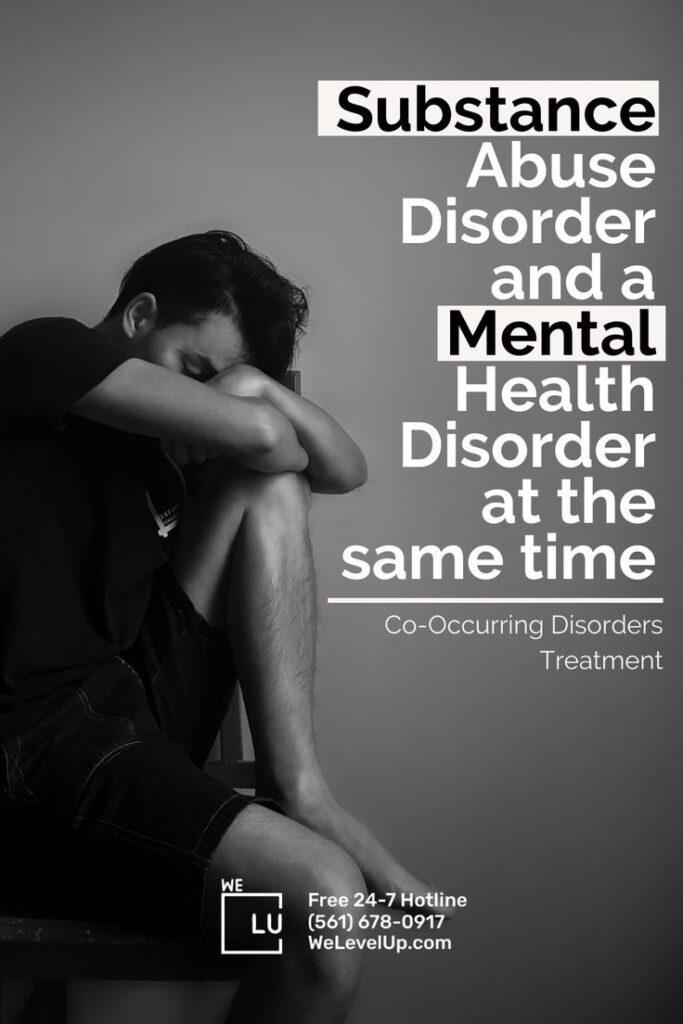
Methadone For Alcohol Withdrawal
Methadone is not typically used for alcohol withdrawal. Methadone is an opioid medication primarily used to treat opioid dependence and addiction. While some drugs, such as benzodiazepines, are commonly used to treat alcohol withdrawal, methadone alcohol withdrawal medication is not one of them.
The standard of care for alcohol withdrawal typically involves the use of medications such as benzodiazepines, which can help to manage symptoms such as anxiety, tremors, and seizures. In some cases, other medications may be used, such as antipsychotics or anticonvulsants. Overall, methadone should only be used under the guidance and supervision of a qualified healthcare provider and only for its approved indications.
Precipitated Withdrawal Methadone
Precipitated withdrawal is a rapid onset of opioid withdrawal symptoms that occur when a person physically dependent on opioids, such as methadone, is given an opioid antagonist, such as naltrexone or naloxone. The opioid antagonist rapidly displaces the opioid from the receptors in the brain, which can trigger a sudden onset of withdrawal symptoms.
Precipitated withdrawal can occur when a person is switched from methadone to another medication, such as buprenorphine or naltrexone, or given an opioid antagonist to treat an opioid overdose. The onset of precipitated withdrawal can be sudden and severe, with symptoms such as nausea, vomiting, diarrhea, anxiety, agitation, and muscle pain.
How To Properly Use Methadone For Detox
Methadone for withdrawal is a potent opioid medication for treating opioid dependence and addiction. To properly use methadone, it is critical to follow these guidelines:
- Methadone should only be used under the guidance and supervision of a qualified healthcare provider experienced in managing opioid dependence and addiction.
- Methadone should be taken exactly as prescribed. Please do not take more or less methadone than your doctor has specified, and do not take it more often than prescribed.
- Methadone should be taken with food or milk to help prevent stomach upset.
- Do not drink alcohol or use other drugs while taking methadone. This can increase the risk of dangerous side effects.
- Do not stop taking methadone without first consulting with your healthcare provider. Methadone should be tapered slowly to prevent withdrawal symptoms.
- Methadone can cause drowsiness, dizziness, and impaired thinking. Do not work with or operate heavy machinery or drive until you know how methadone affects you.
- Methadone can interact with other medications, including prescription, over-the-counter, and herbal supplements. Ensure your healthcare provider knows all the medicines and supplements you are taking.
- Keep methadone in a secure location and out of reach of children. Also, it is crucial for pregnant women who are taking methadone to receive appropriate prenatal care and to work closely with their healthcare provider to manage their methadone use during pregnancy. This can help to minimize the risk of methadone withdrawal in infants. If you suspect infant methadone withdrawal in your child, seek medical attention immediately to ensure safe and effective treatment.
By following these tips for methadone use, you can help ensure the safe and effective use of methadone to treat opioid dependence and addiction. Even if methadone is commonly used to treat other opioid addictions, such as heroin and fentanyl, this medication can also cause physical and mental dependency. Methadone withdrawal usually begins how soon after the last dose. Methadone withdrawal should be managed under medical supervision to ensure that potential complications are identified and treated promptly. If you or someone you’re concerned with is experiencing methadone withdrawal, seeking medical attention immediately is necessary.
Methadone Withdrawal in Jail
Methadone withdrawal can be challenging to manage under any circumstances, but it can be particularly difficult for individuals experiencing withdrawal symptoms in jail or prison. Healthcare providers in jail or prison may be limited in their ability to provide treatment for methadone withdrawal due to resource constraints or legal restrictions on using certain medications.
Suppose you or someone you’re concerned with is in jail or prison and experiencing methadone withdrawal. In that case, it is critical to seek medical detox attention immediately to ensure safe and effective treatment. Working with healthcare providers to develop a plan for managing addiction and withdrawal symptoms during and after incarceration is also necessary.
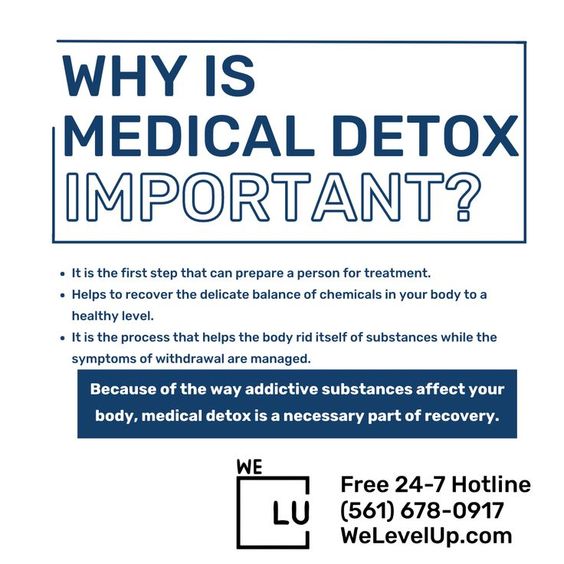
Methadone Withdrawal Medications
Several medications can be used to manage the symptoms of methadone withdrawal. The specific drugs used may depend on the severity of withdrawal symptoms and the individual’s medical history. Here are some common methadone withdrawal meds that may be used to manage methadone withdrawal:
- Clonidine: This medication is often used for high blood pressure treatment, but it can also be used to manage the symptoms of methadone withdrawal. It works by reducing the activity of the sympathetic nervous system, which can help to relieve some of the physical symptoms of withdrawal.
- Benzodiazepines: These medications are often used to manage anxiety and insomnia, which are common symptoms of methadone withdrawal. Benzodiazepines enhance the activity of the neurotransmitter GABA, which can help calm the nervous system.
- Nonsteroidal anti-inflammatory drugs: NSAIDs can help relieve the muscle and joint pain associated with methadone withdrawal.
- Antidepressants: These medications may be used to manage the mood symptoms associated with methadone withdrawal, such as depression and anxiety.
- Opioid agonists: These medications, such as buprenorphine, can help manage withdrawal symptoms and prevent relapse. They work by activating the same receptors in the brain that methadone activates but to a lesser degree. This can help to reduce withdrawal symptoms and cravings while minimizing the risk of addiction.
Methadone Detox Centers
Inpatient methadone detox is a treatment program that involves staying in a residential facility while undergoing detoxification from methadone. This type of treatment can be particularly beneficial for individuals who have been using methadone for a long time or who have been unable to stop using methadone on their own successfully.
During inpatient methadone detox, individuals typically receive round-the-clock medical care and support from a team of healthcare providers. This can include medications to manage withdrawal symptoms and counseling and other support services to help address the underlying issues that may have caused addiction.
How long do methadone withdrawals take? The duration of inpatient methadone detox can vary based on the individual’s needs and addiction severity. Some programs may last for several days, while others may last for several weeks or months.
In addition to providing medical care and support, inpatient methadone detox programs may offer various other services and activities to help individuals recover from addiction. These include group therapy, individual counseling, recreational activities, and life skills training.
Inpatient methadone detox is an effective way to manage withdrawal symptoms and begin recovering from methadone addiction. However, choosing a reputable treatment program and working closely with healthcare providers to ensure safe and effective treatment is necessary.

First-class Facilities & Amenities
World-class High-Quality Addiction & Mental Health Rehabilitation Treatment
Rehab Centers TourRenowned Addiction Centers. Serene Private Facilities. Inpatient rehab programs vary.
Addiction Helpline(844) 597-1011Proven recovery success experience, backed by a Team w/ History of:
15+
Years of Unified Experience
100s
5-Star Reviews Across Our Centers
10K
Recovery Success Stories Across Our Network
- Low Patient to Therapist Ratio
- Onsite Medical Detox Center
- Comprehensive Dual-Diagnosis Treatment
- Complimentary Family & Alumni Programs
- Coaching, Recovery & Personal Development Events
What Happens During Methadone Detox?
Detoxing from methadone is never easy, but treatment at one of We Level Up’s methadone detox centers can make the process simpler, more comfortable, and more achievable. To detox methadone, the process takes place across distinct stages, each of which helps people overcome various aspects of methadone addiction.
Step 1. Assessment
The first step of methadone detox is a detailed and thorough assessment performed by our team of addiction and mental health professionals. Your initial assessment will answer several important questions, including:
- How frequently you’ve been taking methadone?
- Your typical methadone dose.
- How long you’ve been taking methadone?
- Whether you’ve been using drugs or alcohol in addition to methadone.
- Whether you have any pre-existing medical conditions.
- Whether you’re taking any prescription medications.
Answering these questions during the assessment stage helps our team create a personalized treatment plan to minimize your withdrawal from methadone and help you achieve sobriety.
The assessment stage typically occurs on your first day in our methadone detox centers. After acquiring the information needed to create a treatment plan, you’ll receive a prescription for any supportive medications used during detox and begin the next phase of treatment.
Step 2. Stabilization
The stabilization phase of treatment takes up the bulk of your stay at our methadone detox center. During this phase, clients are under 24/7 medical observation and monitoring, and they receive targeted treatments and medications to help them with any uncomfortable withdrawal symptoms they may be experiencing.
You can start experiencing withdrawal symptoms several days after you last used methadone. Unfortunately, methadone withdrawal can last much longer than typical opioid withdrawal symptoms. For this reason, the stabilization stage of methadone detox can last significantly longer than other substance use detox programs.
Our team will administer prescription medications explicitly designed to alleviate severe withdrawal symptoms during treatment. This includes treating psychological symptoms like drug cravings, anxiety, depression, and trouble sleeping.
Step 3. Transition
While medical detox is an essential first step in overcoming methadone dependency, many people will require addiction treatment to achieve long-term recovery. Moreover, people addicted to methadone may continue experiencing post-acute withdrawal symptoms after detox, which can often trigger a relapse if not treated with evidence-based treatment.
Accordingly, the last stage of your methadone detox focuses on transitioning to the next level of care. At We Level Up, this process is as streamlined as possible. Our treatment network covers the entire continuum of care, allowing clients who attend methadone detox to seamlessly transition into inpatient or residential treatment programs after finishing the methadone withdrawal timing and process.
What Happens After Methadone Detox?
Following detox for methadone addiction, most people will enter a formal addiction treatment program to learn the skills and coping mechanisms required for a lifetime in recovery.
If you’re searching for a “detox from methadone near me?” We Level Up offers several levels of care to support this process and can be there to help you along every step in your recovery journey. We can help you navigate treatment options and centers near you.
Inpatient Treatment
Most clients who have completed methadone detox will transition into an inpatient treatment program. Inpatient treatment offers the most intensive form of addiction therapy, with clients living on-site at a treatment facility with others working toward recovery.
During your stay at our inpatient treatment center, you will take part in evidence-based treatment methods proven to help people overcome methadone addiction, including:
- Individual therapy.
- Group therapy.
- Motivational interviewing.
- Relapse prevention programs.
- Medication-assisted treatment.
- Experiential therapies.
- Family therapy.
Together, these treatments can teach people how to resist the temptation to return to drug use, overcome drug cravings, and cope with life’s stressors healthily. Inpatient treatment typically lasts between thirty and ninety days. Extended stays in inpatient treatment are available for some clients with severe substance use problems.
Partial Hospitalization Programs
A partial hospitalization program (PHP) provides the same therapies, treatments, and experiential groups as those in residential care. Clients attend a partial hospitalization program several days a week for several hours at a time. You can think of a PHP as a full-time job, where the work you’ll be doing is learning how to get and stay sober for the rest of your life. The treatment clients receive during the day can provide specific, targeted strategies to help them overcome these challenges and prepare them to continue managing them in the future.
Alumni Programs
The alumni programs at We Level Up provide ongoing support for people who have graduated from one of our addiction treatment programs. Clients who attend alumni programming are much more likely to achieve long-term sobriety because they have ongoing access to essential components of an overall substance use treatment plan.
The alumni program includes several services that can benefit a person’s recovery, including alumni groups, continued contact with your treatment team, and connections to outside providers offering ongoing mental health services.
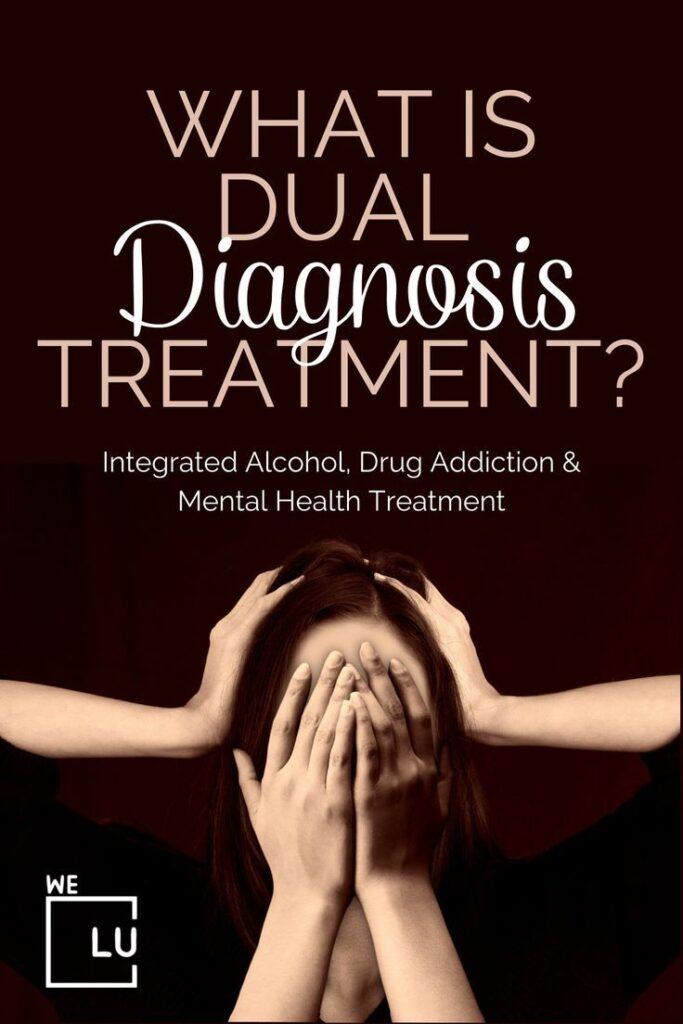
Dual-Diagnosis Programs
Many people with methadone addiction or substance use disorders experience co-occurring mental illnesses. Common mental health disorders among people experiencing methadone addiction include the following:
- Depression.
- Anxiety.
- Attention deficit/hyperactivity disorder.
- Obsessive-compulsive disorder.
- Post-traumatic stress disorder.
- Bipolar disorder.
At a dual-diagnosis facility, people can receive adequate mental health treatment alongside the best evidence-based treatments for addiction. Dual-diagnosis programs integrate these treatments and can create much better outcomes for people with co-occurring mental illnesses.
Dual diagnosis programs are offered in inpatient and residential formats and are often the best choice for people quitting methadone.
Benefits Of Undergoing A Medical Detox
Searching for “methadone rehabs near me?” We Level Up addiction treatment center provides world-class care with round-the-clock treatment professionals to help you cope. We work as an integrated team providing support through methadone detox and other aspects of treatment. Make this your chance to reclaim your life.
Each call is private and confidential, and there is never any obligation.
Contact one of our treatment specialists. Our specialists know what you are going through and will answer any of your questions. If you’re looking for a “methadone detox center near me?” We can help you explore treatment options and detox centers.
Methadone Detox Near Me
We Level Up has several detox centers in different states and cities for you to choose from accordingly to your location and specific needs. From “methadone detox Florida” to detox centers in California, New Jersey, Washington, Texas, and other states. The We Level Up treatment center offers top-notch care and has on-call doctors ready around the clock to assist you. As a cohesive team, we offer support during the methadone detox process and other parts of treatment. Take advantage of your chance to recover your life. Stop searching for a detox from methadone near you, and call now.
World-class, Accredited, 5-Star Reviewed, Effective Addiction & Mental Health Programs. Complete Behavioral Health Inpatient Rehab, Detox plus Co-occuring Disorders Therapy.
CALL(844) 597-1011End the Addiction Pain. End the Emotional Rollercoaster. Get Your Life Back. Start Drug, Alcohol & Dual Diagnosis Mental Health Treatment Now. Get Free No-obligation Guidance by Substance Abuse Specialists Who Understand Addiction & Mental Health Recovery & Know How to Help.
Top 5 Methadone Withdrawal Help FAQs
-
How long does it take to withdraw from methadone?
The duration of methadone withdrawal is determined by several factors, including the individual’s level of methadone use, the length of time they have been using methadone, and their overall health. Methadone is a long-acting opioid, so withdrawal symptoms may not appear as quickly as with a shorter-acting opioid such as heroin. Generally, methadone withdrawal symptoms can occur within 24-48 hours of the previous dose and may last for several weeks or even months.
-
Can methadone withdrawal kill you?
Although rare, it is possible to be lethal. The most severe potential complication of methadone withdrawal is dehydration, which can happen due to vomiting, diarrhea, and sweating. Severe dehydration can lead to electrolyte imbalances and other medical problems that can be life-threatening if left untreated.
Moreover, individuals who attempt to withdraw from methadone alone, without medical supervision or support, may be at greater risk of relapse or overdose. This is because methadone withdrawal can cause intense cravings for the drug. Individuals may be more likely to use higher doses of methadone or other opioids to manage their withdrawal symptoms.
-
What helps with methadone withdrawal?
Several strategies can help to manage methadone withdrawal symptoms and make the process more comfortable. The withdrawal process can be complex, and it may take time and patience to manage withdrawal symptoms effectively. Working closely with a healthcare provider and having a support system to help manage the process is crucial.
-
How long do methadone withdrawals last?
Methadone withdrawal symptoms can begin to appear within 24-48 hours of the previous dose and may last for several weeks or even months. The acute phase of methadone withdrawal typically lasts 7-10 days, during which the individual may experience various physical and psychological symptoms. After the acute withdrawal phase, some individuals may experience a protracted withdrawal syndrome, including ongoing symptoms such as insomnia, depression, and anxiety. This withdrawal phase can last several weeks or months but gradually improves.
-
How to detox from methadone?
Detoxification from methadone typically involves gradually reducing the drug dosage over time until the body can adjust to lower levels of the drug. The process can be done in an inpatient or detox center setting, depending on the individual’s needs and the severity of their addiction.
Alumni Coordinator, Nicole Baxter’s Methadone Addiction Recovery Journey With Support From Daughter
Get FREE addiction treatment insurance check – https://welevelup.com/rehab-insurance/. If you or a loved one is struggling with methadone addiction or other substance use disorder(s), call a FREE consultation 24/7 at (561) 678-0917
Nicole Baxter’s Addiction Recovery Story and Testimonial Video
“I’m here with Nicole Baxter, one of our alumni coordinators.
What does your bottom look like?
My bottom was like a spiritual bottom. I was I wanted to die every day. I was putting a lot of drugs in my system every day, trying to make the pain disappear. And it wasn’t going away anymore. So I was using it for no reason anymore because when I first started using it, that’s what that was for to make it all disappear. And it was still there. So it was like a spiritual bottom for me. I felt dead inside, and I was looking for a way out. So I prayed hard that night, and my brother a few days later called me.
How long were you in treatment?
A long time. I went to detox for almost a month because I was on methadone when I came here, so my detox was painful when I finally came.
Knowing I was away from them was hard because it was like a reality check. It was the hardest part of getting sober.
It was my biggest excuse before coming to not like that was my excuse. Like, I can’t go to treatment, I can’t be away from my kids, but I wasn’t a mom anyway, so I was getting high every day, you know? And I struggled with telling my daughter the truth about where I was. She thought that I had just come down here to visit her uncle.
It wasn’t until I was in, like, IOP one afternoon my therapist had me go outside and make a phone call, and I told her that I had come down for detox. And in my head, I thought that she was gonna hate me. But it was the best conversation ever. She said, ” Mummy, I just want you to get better. I’m just happy that you’re getting better.
What is your life like today? In sobriety, in recovery?
I’m happy, sober happier than I was high. And I thought that I’d never be happy sober. I didn’t think it was possible.
What do you do for your recovery every day? I have sponsees that I talk to daily, so I give back what I was given, which is what I think keeps me sober at most. I go to meetings, I work in treatment. So I’m hands-on with clients all day long, people who are right where I was. So I try to use my story to help them get to a better place.
Oh, yeah.”
Experience Transformative Recovery at We Level Up Treatment Centers.
See our authentic success stories. Get inspired. Get the help you deserve.
Start a New Life
Begin with a free call to an addiction & behavioral health treatment advisor. Learn more about our dual-diagnosis programs. The We Level Up Treatment Center Network delivers recovery programs that vary by each treatment facility. Call to learn more.
- Personalized Care
- Caring Accountable Staff
- World-class Amenities
- Licensed & Accredited
- Renowned w/ 100s 5-Star Reviews
We’ll Call You
Search We Level Up Methadone Detox, Mental Health Topics & Resources
Sources
[1] Clinical Guidelines for Withdrawal Management and Treatment of Drug Dependence in Closed Settings. Geneva: World Health Organization; 2009. 4, Withdrawal Management. Available from: https://www.ncbi.nlm.nih.gov/books/NBK310652/
[2] Anderson IB, Kearney TE. Use of methadone. West J Med. 2000 Jan;172(1):43-6. DOI: 10.1136/ewjm.172.1.43. PMID: 10695444; PMCID: PMC1070723.
[3] Durrani M, Bansal K. Methadone. [Updated 2022 Aug 1]. In: StatPearls [Internet]. Treasure Island (FL): StatPearls Publishing; 2023 Jan-. Available from: https://www.ncbi.nlm.nih.gov/books/NBK562216/
[4] Clinical Guidelines for Withdrawal Management and Treatment of Drug Dependence in Closed Settings. Geneva: World Health Organization; 2009. 6, Methadone maintenance treatment. Available from: https://www.ncbi.nlm.nih.gov/books/NBK310658/
[5] What is Methadone? – Substance Abuse and Mental Health Services Administration (SAMHSA)
[6] Methadone Fast Facts – National Drug Intelligence Center
[7] Institute of Medicine (US) Committee on Federal Regulation of Methadone Treatment; Rettig RA, Yarmolinsky A, editors. Federal Regulation of Methadone Treatment. Washington (DC): National Academies Press (US); 1995. 5, Federal Regulation of Methadone Treatment. Available from: https://www.ncbi.nlm.nih.gov/books/NBK232105/
[8] Drug Fact Sheet: Methadone – Durg Enforcement Administration (DEA)
[9] Methadone: MedlinePlus Drug Information – U.S. Department of Health and Human Services National Institutes of Health
[10] Information about Medication-Assisted Treatment (MAT) – Food & Drug Administration (FDA)


